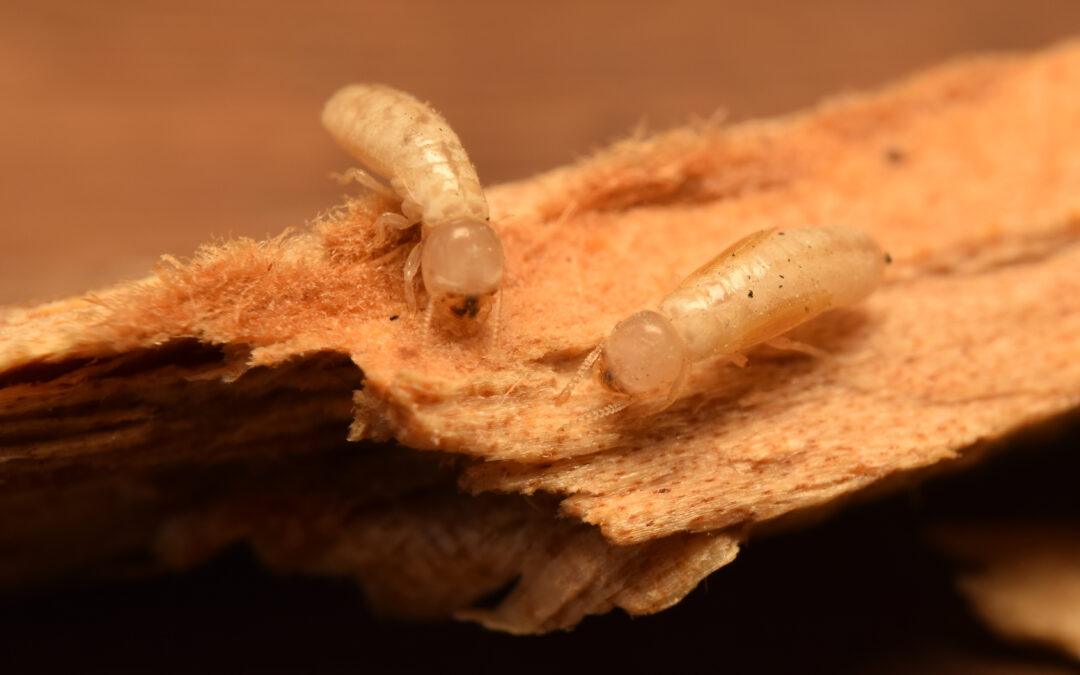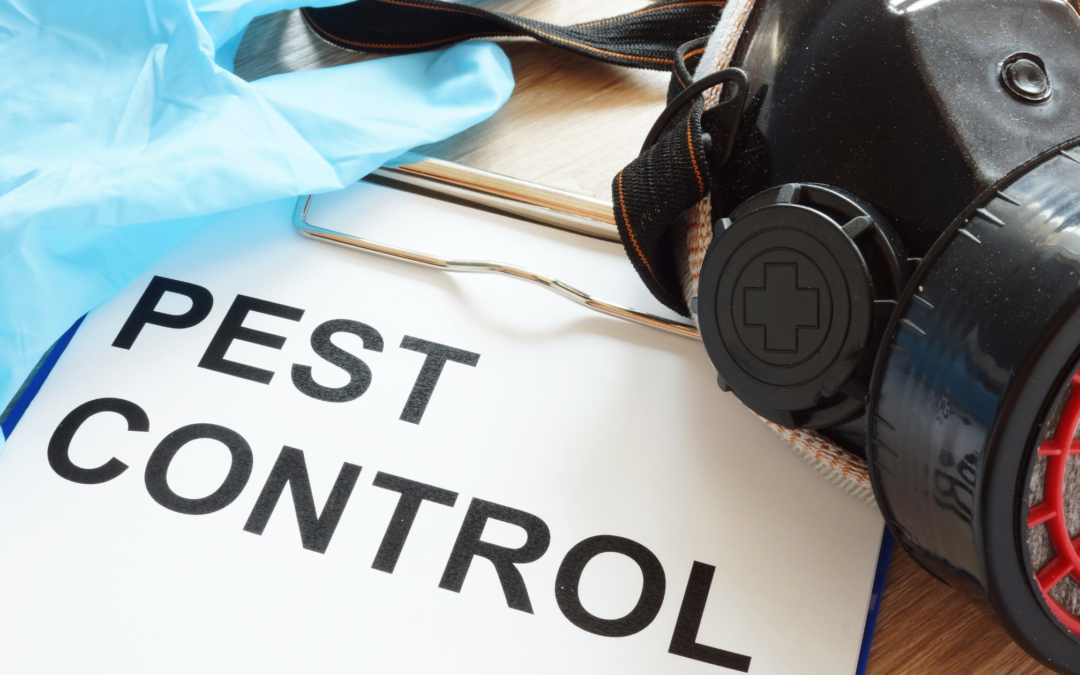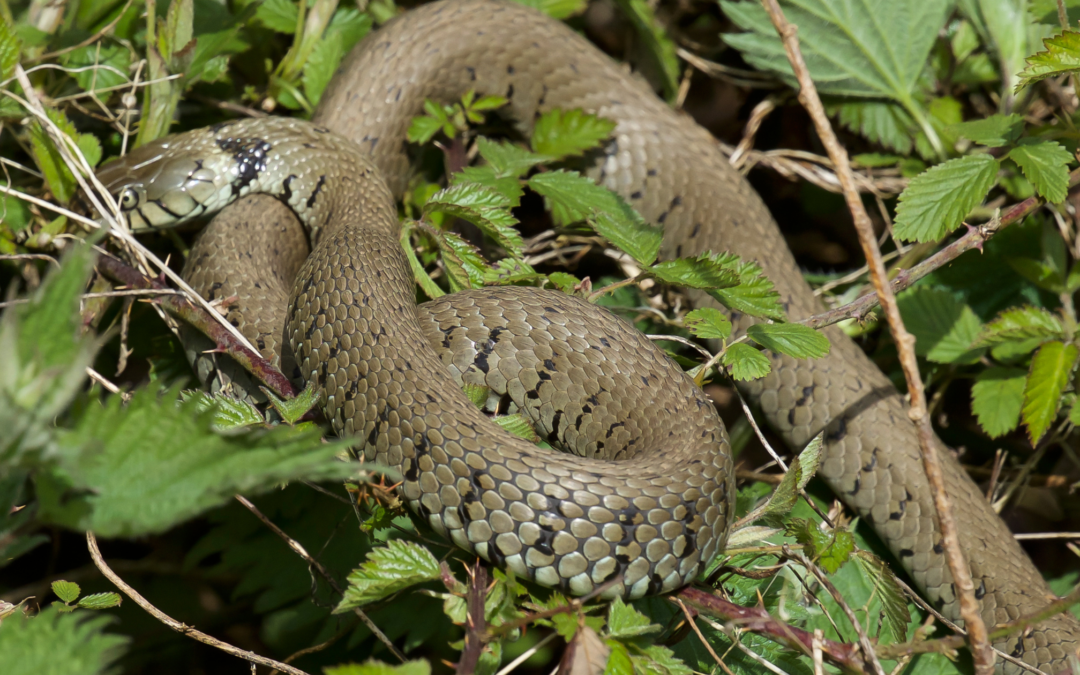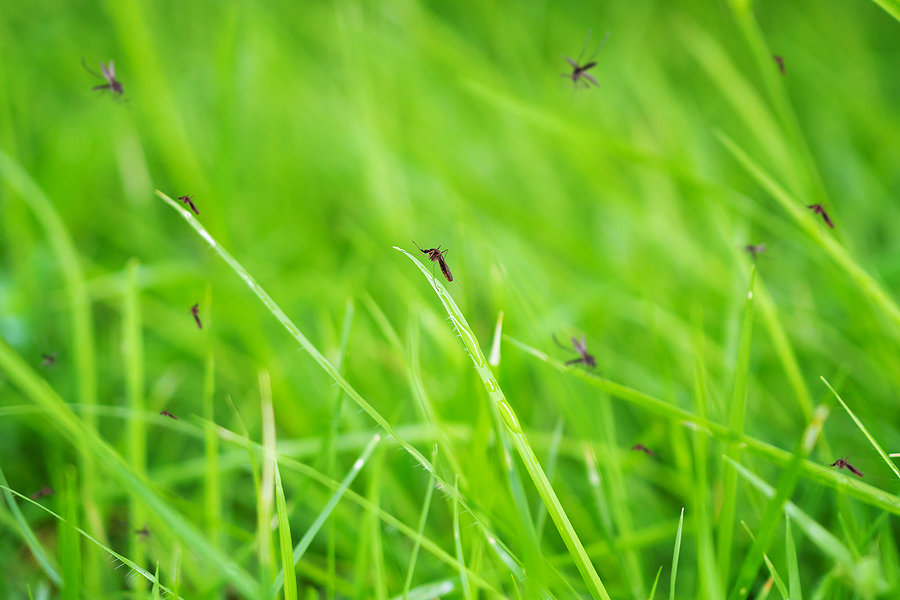READY TO GET STARTED?
REQUEST A FREE ESTIMATE
Fill out the form below or call (888) 466-7849 for a free, no-obligation estimate.

Drywood termites are quite common in the South Florida area, thriving off our year-round dry and humid temperatures. This termite type can be difficult to spot in homes and will often go undetected for lengthy periods, causing considerable structural damage. The best way to avoid the costly damage of drywood termites is to understand their characteristics and the preventative measures you can place to deter them away from your property. Let’s learn more about these household pests and drywood termite control tips to protect your home.
Unlike the subterranean termite, drywood termites do not need to live in soil to survive. These termites will instead excavate wood to create a colony and live. Drywood termites will seek out dry wood, hence their name, to build a nest and live in it, such as attic framings. Drywood termites have an oval-shaped waist, short legs, and a cream to light brown colored body.
Often, drywood termites get into your Florida home by hitchhiking through an already infested piece of old furniture, picture frame, or other wooden structure. While they don’t create mud tubes like the subterranean termite to enter the home, they instead fly directly to the wood they infest. They’ll also enter homes through open gaps or cracks around window frames, doors, soffits, and attics.
Since termites live in excavated wood, it can be hard to identify them but there are plenty of signs you can lookout for. A good indication that termites have created a colony in your home is spotting discarded wings near windowsills or doors and finding droppings or frass that look like small mounds of tiny pellets inside or around your home.
There are several preventative do-it-yourself methods you can use throughout your Florida property; consider these:
If you’ve noticed signs of termite activity on your property or would like to get started on drywood termite control, reach out to your Florida pest control company! Termite professionals will provide you with a free home inspection, a treatment plan based on your termite control needs, and a prevention plan to avoid a future infestation.


As the weather warms up in Georgia, so does the activity of one of the area’s most misunderstood creatures: snakes. With snake season approaching, it’s essential to take proactive steps to ensure your yard is prepared for these slithery visitors. Whether you’re concerned about encountering venomous species or simply want to minimize their presence around your home, proper preparation and understanding are key. Here’s everything you need to know to get your yard ready for snake season:
Snake season in Georgia typically begins in the spring, around March or April, and extends through the summer months until around September or October. During this time, snakes become more active as they emerge from hibernation and seek food, mates, and suitable habitats.
Georgia is home to a variety of snake species, both venomous and non-venomous. Some of the most common snakes you may encounter include:
While most snakes in the region are harmless and play a vital role in controlling rodent populations, it’s essential to be able to identify venomous species and exercise caution when encountering any snake.
Whether you’re gardening, hiking, or simply enjoying time outdoors, it’s crucial to practice snake safety to minimize the risk of encounters. Here are some tips to keep in mind:
While it’s impossible to completely eliminate snakes from your property, there are steps you can take to make your yard less attractive to them:
If you’re concerned about snakes or other wildlife on your property, don’t hesitate to reach out to a professional pest control company near you for assistance. Our team of experts specializes in humane snake relocation, snake control, and wildlife management services tailored to your specific needs. Request a free wildlife control quote today and enjoy peace of mind knowing your yard is in good hands.
As snake season approaches, taking proactive steps to prepare your yard can help minimize encounters and ensure a safe and enjoyable outdoor experience for you and your family. By understanding common snake species, practicing snake safety, and implementing effective deterrents, you can create a snake-friendly environment that strikes a balance between coexistence and control.

It’s safe to say that all Florida homeowners dread the arrival of mosquito season! It’s inevitable to run into these insects but that doesn’t mean they have to take over your yard. We breakdown common DIY mosquito control tips you can utilize in your yard!
To survive and breed, mosquitoes only need a small amount of water and will look to your yard for it. One of the best ways to repel mosquitoes from your property is to reduce standing water throughout it. Remove any items that could hold water for more than a week and become a mosquito breeding ground, including empty flowerpots, buckets, tires, toys, and pet bowls. For items that tend to stay outside, like birdbaths and gutters, make sure you are regularly cleaning them, clearing out old water and debris.
Your back porch or patio can quickly be taken over by mosquitoes and ruin your outdoor fun. Mosquitoes are weak fliers and are easily manipulated by wind. Consider utilizing fans to help deter them from getting close to you in certain outdoor areas. Fans can also work to disperse carbon dioxide and other mosquito attractant odors our warm-blooded bodies let off.
Certain plants and oils can deter mosquitoes naturally from your Florida home. You can mix essential oils such as lemon eucalyptus, peppermint, or tea tree with water and vinegar to repel mosquitoes. Likewise, there are several plants you can plant in your yard to deter mosquitoes, including citronella, lavender, marigold, rosemary, thyme, and basil.
Adult mosquitoes tend to rest in shaded, cool areas so it’s important to create an environment without these factors to keep them away. Continue maintaining your yard by keeping your grass mowed frequently and keeping shrubbery trimmed. If your yard has wood or lawn debris, it’s best to clean up as soon as possible or relocate it at least 20 feet away from the property.
While the above DIY tips can provide mosquito-relief sometimes it’s best to call a professional for an ongoing solution to mosquito activity. A pest control provider near you will provide you with a thorough inspection and recommend the best mosquito control options for your home based on your mosquito situation. These mosquito professionals will also provide you with further tips and tricks on avoiding mosquito infestations in the future.

We can often view our Tennessee attic as just a place to store our extra belongings, but if it’s not managed or taken care of properly, our home can be negatively impacted. With fluctuating climates in Tennessee, your attic insulation should be working to keep your home either cool or warm depending on the outside temperature. If you notice that you tend to change your thermostat more often than usual, this could be a sign that your attic is poorly insulated. Let’s review the benefits of insulating your attic!
An insulated attic can ensure you and your family’s overall comfort inside! If your attic isn’t properly insulated, you might notice that your rooms fluctuate in temperature, causing you to change the thermostat and, in return, overwork your system and cause HVAC inefficiencies.
Your well-insulated attic will cool and heat your home, reducing your energy bills annually! Since your attic is insulated, your HVAC doesn’t have to work as hard to regulate your home’s temperatures, easily heating it during the winter and cooling it off during the summer. An insulated attic will also help extend the life of your HVAC system and avoid costly repairs, improving the performance and operation overall.
Insulation can act as a barrier, seal your attic, and keep unwelcome guests like roaches, ants, and other pests from entering your home. Some insulation is also coated in boric acid and can affect pests by causing a disruption to their stomachs and affect their nervous system and in return keep them from infesting. Old insulation can also harbor nests and droppings in them, which can contain disease and cause health risks to your family, making it important to update or replace your insulation.
If you’re ready to replace your attic’s insulation, consider reaching out to a pest control company near you for a free quote!